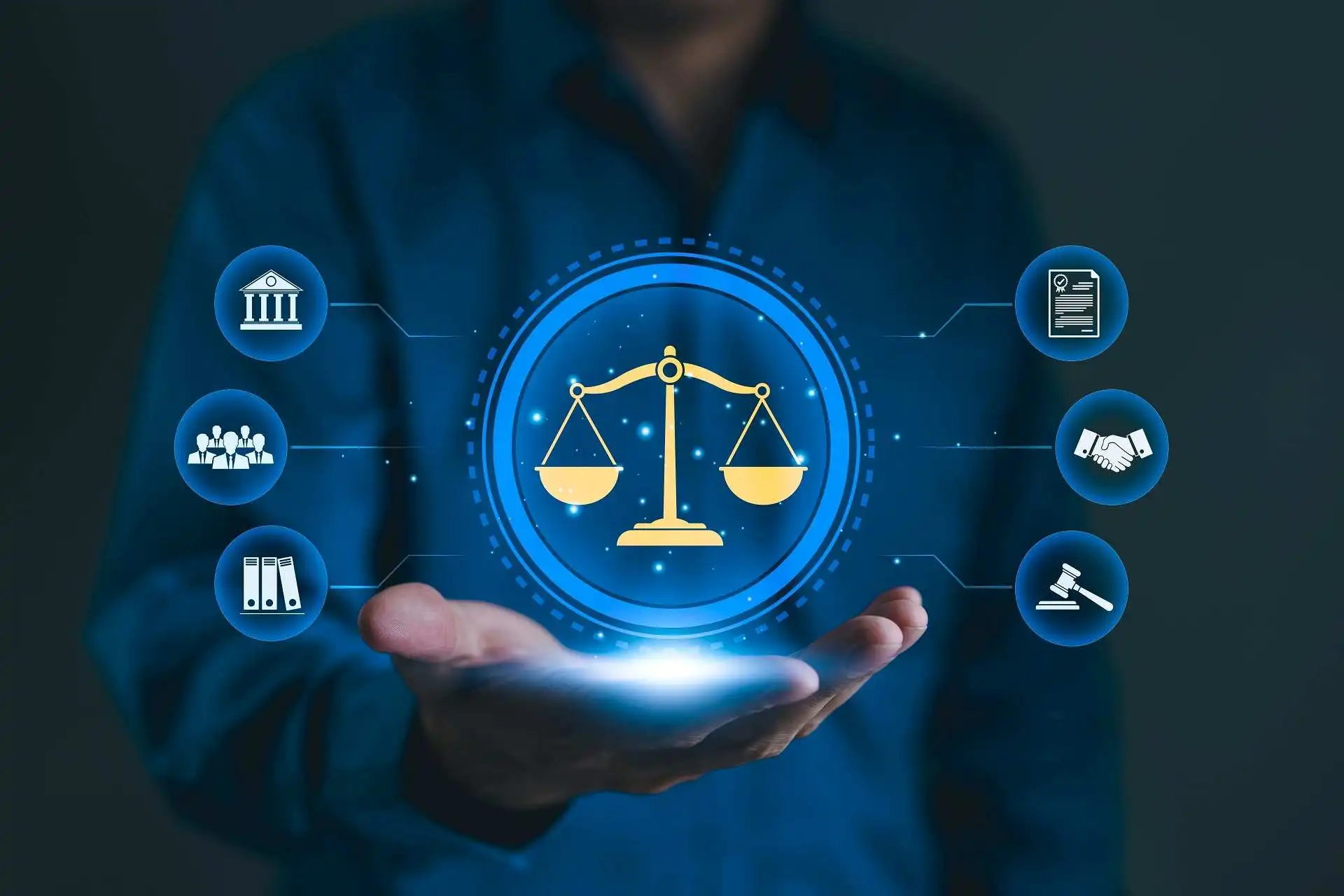The legal profession is rapidly changing, and artificial intelligence (AI) is at the heart of this transformation. AI software is no longer science fiction; it is now widely used in legal firms. Lawyers and legal professionals are adopting artificial intelligence (AI) to automate routine activities, increase productivity, and improve customer service.
Generative Artificial Intelligence (AI) allows solicitors to evolve as legal practitioners, increasing efficiency, expanding talents, and transforming the supply of legal services, making them faster and more cost-efficient for clients.
How does AI integrate with Lawyers?
Integrating chatbots with law practice management software represents a considerable improvement in operational efficiency. These advanced instruments are meant to integrate smoothly with law firms' digital infrastructure. Chatbots can interface with databases, planning tools, and client management systems via APIs, resulting in a solid, efficient workflow.
For example, a chatbot may book consultations in the firm's calendar system, update customer information, and even initiate invoicing processes without requiring manual participation. This integration reduces administrative processes and ensures that all client interactions are captured and used effectively, improving the firm's capacity to provide specialized legal services.
Benefits of AI used in Legal Firms
AI is altering the success metrics for law firms, from increasing efficiency and assuring perfect accuracy to developing client-centric approaches and optimizing financial operations.
- Increased Productivity
The key advantage of implementing AI in legal firms is enhanced productivity. Many AI solutions can automate repetitive, manual operations such as research and due diligence, freeing time to focus on more complicated legal issues. Lawyers can handle more cases more efficiently now that they are not buried in details.
- Improved Precision
Unlike humans, AI systems are immune to weariness, cognitive biases, and errors, guaranteeing that all information is processed consistently and correctly. Whether it's searching enormous databases for relevant case law or cross-referencing complex contract clauses, AI reduces the margin for error, especially when combined with a human review, which is strongly recommended.
- Client-Centered Law Companies.
Some consider AI a danger to human interaction, yet it can improve a client's experience when implemented effectively. Attorneys and lawyers now have more time to spend with clients. This frees more time to create relationships and learn exactly what your clients want.
- It Saves Money.
Embracing artificial intelligence in the legal sector is more than just a trend; it's an investment in sustaining and propelling your company into a future where efficiency and precision are critical.
AI quickly and accurately completes repetitive administrative duties, allowing your team to focus on billable hours and complex legal work.
Challenges Faced by Using AI
Despite Generative AI's enormous potential, its implementation in legal practice presents problems. Legal practitioners may face challenges in understanding and applying AI technologies, such as the following:
Technical Complexity: Because generative AI systems use complex computations and demand a deep understanding of machine learning rules, lawyers unfamiliar with computational concepts may face a steep learning curve.
Ethical Considerations: The application of AI in legal practice raises moral questions about algorithmic prejudice and client confidentiality. Legal practitioners must negotiate these ethical challenges while using AI tools appropriately and ethically. Another major concern is the possibility of algorithmic bias, in which AI systems may unintentionally maintain or magnify preexisting prejudices.
AI Errors: AI could be more flawless and has been shown to provide incorrect and faulty outputs. Thoroughly reading and fact-checking case citations and legal analysis is critical, and applying AI necessitates an investment of attorney time and attention to ensure any outputs are correct and relevant. Given the possibility of inaccuracies in AI results, legal professionals must conduct a comprehensive assessment.
Job Losses: While AI has many advantages, it is crucial to recognize concerns about potential job displacement in the legal profession. As AI automates jobs, certain legal responsibilities may evolve or shift.

